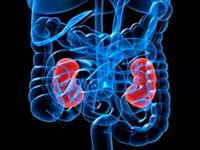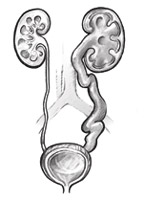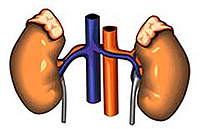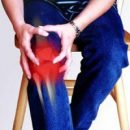Dysmetabolic nephropathy - Frequent cause of urolithiasis in people, Pathology of kidney with metabolic disorders. In children, dysmetabolic nephropathy is due to the hereditary defects of metabolism, less often - related nephrological diseases or environmentally unfavorable conditions for residence.
Content
 Term «Dysmetabolic nephropathy» Denote by the pathology of the kidneys, developing against the background of exchange disorders, for example, violations of the exchange of oxalous, uric acid, cysteine, calcium, which is found in small patients. The flowing dysmetabolic nephropathy in children is hidden in children, despite the absence of typical external manifestations, with time leads to the destruction of the membranes of the renal cells, the development of jade and urolithiasis. Accession of bacterial infection leads to pyelonephritis, reducing the function of the kidneys and the development of chronic renal failure.
Term «Dysmetabolic nephropathy» Denote by the pathology of the kidneys, developing against the background of exchange disorders, for example, violations of the exchange of oxalous, uric acid, cysteine, calcium, which is found in small patients. The flowing dysmetabolic nephropathy in children is hidden in children, despite the absence of typical external manifestations, with time leads to the destruction of the membranes of the renal cells, the development of jade and urolithiasis. Accession of bacterial infection leads to pyelonephritis, reducing the function of the kidneys and the development of chronic renal failure.
The reasons for the development of dysmetabolic nephropathy
How dysmetabolic (exchange) nephropathy develops?
 Violation of metabolism is accompanied by the accumulation of intermediate exchange products and an increase in the burdens. Possessing toxic action of incomplete metabolites cause damage to the renal tubules and violate their function. Crystals of the exchange products fall into the interstitial kidney tissue, causing a developed substantial-interstitial nephritis. When sealing crystals with urine, stones are formed, and urolithiasis develops. Thus, people suffering from diabetes mellitus often have kidney disease, with dysmetabolic nephropathy in children there are violations of the exchange of glycine, serine, tryptophan, purines.
Violation of metabolism is accompanied by the accumulation of intermediate exchange products and an increase in the burdens. Possessing toxic action of incomplete metabolites cause damage to the renal tubules and violate their function. Crystals of the exchange products fall into the interstitial kidney tissue, causing a developed substantial-interstitial nephritis. When sealing crystals with urine, stones are formed, and urolithiasis develops. Thus, people suffering from diabetes mellitus often have kidney disease, with dysmetabolic nephropathy in children there are violations of the exchange of glycine, serine, tryptophan, purines.
Among the types of dysmetabolic nephropathy, oxalate, the most frequent find (34.9%) of children's nephrologists are prevailing (34.9%) of children's nephrologists, less commonly, in 33.3% of cases there are visits, at 16.5% — phosphates, in 13.3% -Ssed stones.
The presence of crystals and stones in urinary ways contributes to the attachment of infection and the development of microbial inflammation — Pyelonephritis. In the absence of correction of metabolic defects and diet diet, dysmetabolicnefroopathy leads to the development of chronic renal failure.
Dysmetabolic nephropathy and urolithiasis of children occurs:
- on the background of obesity when the frequency of dysmetabolic nephropathy of oxalate and oxalate-calcium increases increases;
- on the background of hormonal disorders, for example, insulin deficiency in diabetes mellitus (oxalateadismetabolic nephropathy);
- Against the background of violation of the production of the hormone of the parachitoid gland (oxalate nephropathy);
- in the presence of food allergies and intolerance to medicines;
 Urolithiasis in adult people and in children is developing in hereditary predisposition and irrational diet, unfavorable conditions for the environment of residence, for example, the sowless discharge dysmetabolic nephropathy develops if the child's diet does not limit the consumption of products with a high content of oxalic acid, vitamin C, lactose, sucrose;
Urolithiasis in adult people and in children is developing in hereditary predisposition and irrational diet, unfavorable conditions for the environment of residence, for example, the sowless discharge dysmetabolic nephropathy develops if the child's diet does not limit the consumption of products with a high content of oxalic acid, vitamin C, lactose, sucrose;
When the diagnosis of metropolitan nephropathy is raised?
The disease does not have specific symptoms, except chronic abdominal pain, frequent, painful urination, allergic dermatitis. Sometimes attention is attracted to a decrease in the daily amount of urine, its saturated character, which indicates the presence of dysmetabolic nephropathy, the dietary does not play. Laboratory urine tests reveal a small amount of leukocytes, red blood cells, proteins, a large number of crystals.









